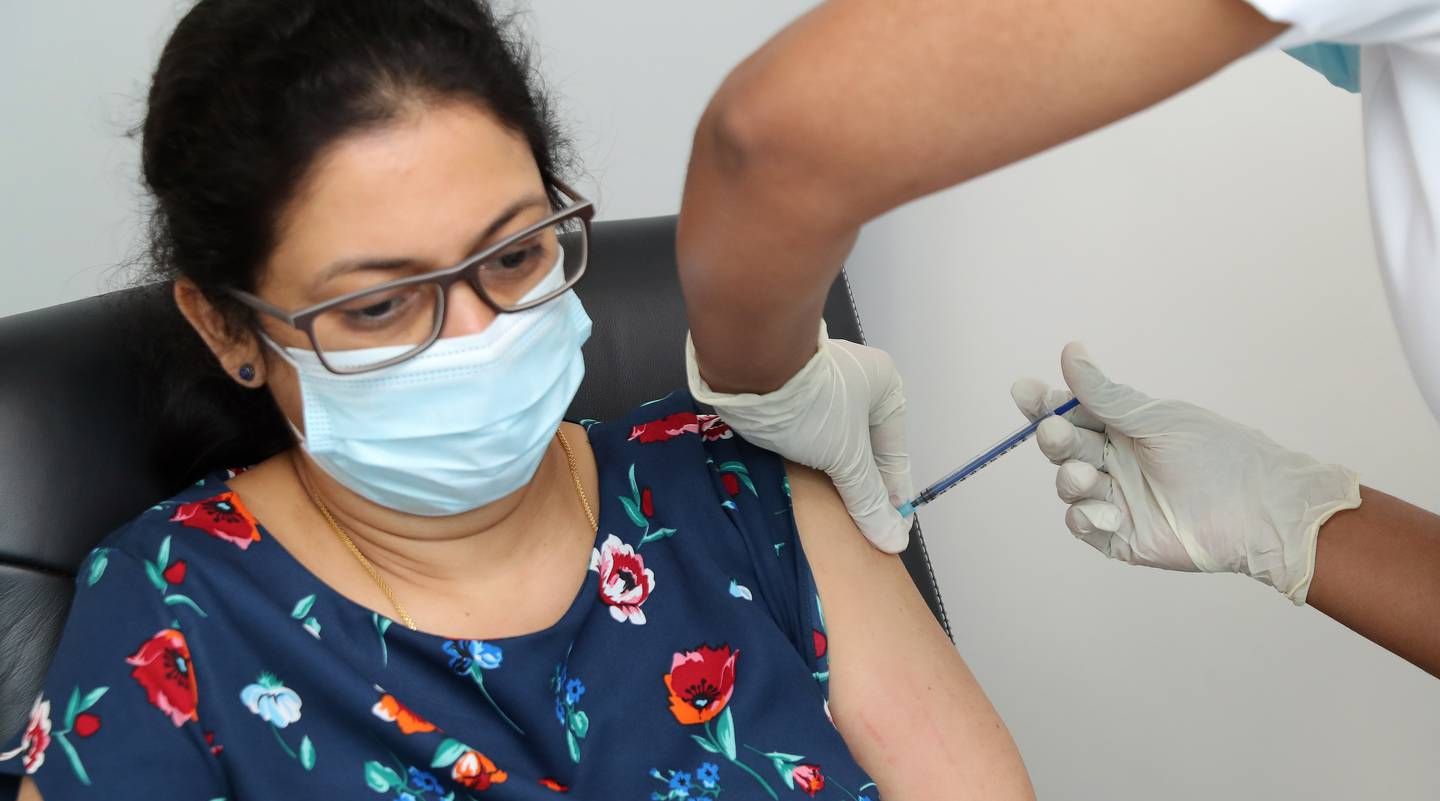Abu Dhabi and Australia have partnered to expand the global RNA ecosystem and enhance future COVID-19 treatments. Recently, an agreement was signed between Dr Jamal Al Kaabi, Undersecretary of Department of Health – Abu Dhabi and Michael Kapel, chief executive of mRNA Victoria, an Australian government initiative to strengthen the health sector.
As part of the agreement, the UAE and Australia will identify relevant areas of interest related to mRNA research, initiate local and global collaboration, facilitate exchange of knowledge and information and explore opportunities to boost early-stage research investment.
During the COVID-19 pandemic, mRNA technology gained significant limelight after Pfizer-BioNTech and Moderna Covid-19 vaccines received approval for global use.
Several vaccines use a weakened or inactivated germ to enhance immune response of the body against infection. However, with mRNA technology, scientists counter the illness by borrowing the body’s natural protein-building software.
This software or messenger RNA (mRNA) is then used to create exact replicas of a known enemy such as the distinctive spike of novel coronavirus. It results in the immune system learning to recognise its enemy and increasing readiness for tackling the real thing.
According to experts, mRNA technology has the potential to change the future of medicine and healthcare globally.
This collaboration will explore clinical trial opportunities and areas for private sector investment in Abu Dhabi and Australia's Victoria state.
Both sides are focusing on enhancing the development of the RNA ecosystem with the aim of identifying prospective partners and collaborating with organisations to develop and licence RNA-based therapeutics and treatments.
Under the partnership, a steering committee of members from the Department of Health and mRNA Victoria will be instituted to work on the alignment and effective execution of projects.
Speaking about the partnership, Dr Al Kaabi expressed the department's willingness to forward-thinking and innovative collaborations with leading global partners, such as the state of Victoria.
"With the signing of the agreement, we look forward to seeing advancements in mRNA-based therapeutics research and strengthening the capabilities of the international healthcare system so that we are better prepared for future pandemics and health crises," Dr Al Kaabi added.
Furthermore, Jaala Pulford, Minister for Innovation, Medical Research and the Digital Economy in the government of Victoria, stated that the agreement confirms a global collaboration to share knowledge, information and expertise within the ecosystem to strengthen supply chains research and development for pre and clinical research, commercialisation and manufacturing investments.
In the past few years, Abu Dhabi has doubled its research capabilities and developed several scientific, clinical and research programmes. Earlier, the Department of Health launched COVID-19 Research Registry, a platform to support scientific research and discoveries related to the virus and disease. Since its launch, the registry has received 386 scientific papers and out of them 340 papers have been approved and 46 have been published.
What is RNA?
RNA or ribonucleic acid is a molecule that plays a key role in the function of genes. In accordance with the success of mRNA mRNA COVID-19 vaccines, experts underlined hope the technology to address the root causes of neurodegenerative diseases such as Alzheimer’s.
mRNA-based treatments or preventive vaccines can also help in tackling diseases like cancer, osteoporosis, diabetes and cystic fibrosis.
Besides mRNA, other forms of RNA such as siRNA, miRNA and gRNA also have huge potential in medicine beyond vaccines. They can be employed in biotechnology and agricultural sectors for enhancement of the operational activities.
How does it work?
While mRNA can be made artificially, it is not a human invention as it is central to the production of proteins from an organism’s genes.
It consists of a single strand of ribonucleic acid (RNA). In mRNA, genes (which in people are made from deoxyribonucleic acid or DNA) are copied inside the nucleus of cells.
It travels into the liquid area outside the nucleus known as cytoplasm where it codes for the production of a protein under the process of translation.
When mRNA is administered as a vaccine or other therapeutic substance, it ends up in cells following which the process of translation takes place and proteins are produced.
mRNA-based COVID-19 vaccines also contained coronavirus spike proteins to offer necessary protection to immune response during infection.
SOURCE: The National News
 AR
AR UR
UR
